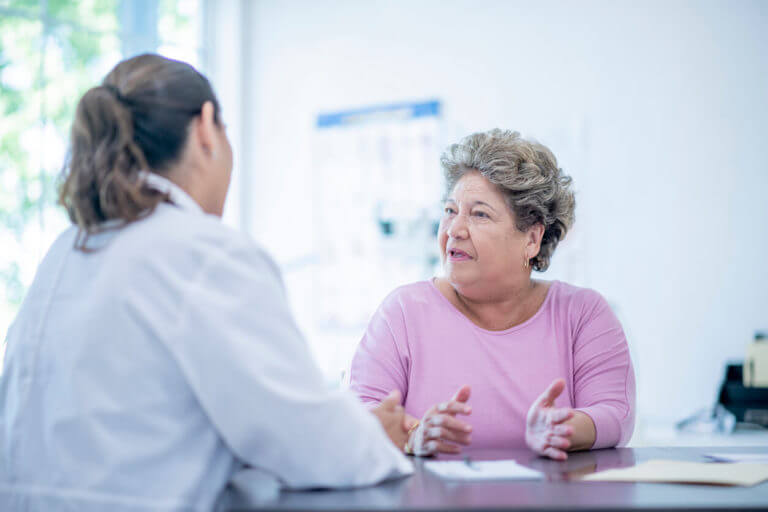
Stroke is an acute medical condition that deprives brain tissue of vital oxygen and nutrients. As one of the major causes of death and disability worldwide, stroke care requires rapid response and long-term management.
Let’s explore the symptoms of stroke and rapid response and long-term management with a skilled neurologist.
The Symptoms of a Stroke
Basically, there are two types of strokes: ischemic and hemorrhagic. Ischemic stroke is caused by a blockage (from a blood clot) of circulation to the brain. Hemorrhagic stroke comes from bleeding from a burst blood vessel deep within the brain tissue or closer to its surface.
Both types of stroke can result in similar symptoms, including:
- Sudden numbness or weakness on one side of the body
- Drooping of one eyelid and/or side of the face
- Difficulty speaking or understanding speech
- Blurred vision or sudden loss of vision in one eye
- Dizziness, difficulty walking, and loss of coordination
- Severe headache
Unfortunately, symptoms of some strokes may start and stop. This variability can convince someone there is no need for medical intervention. However, nothing could be further from the truth. Any symptoms of stroke must be taken seriously.
Rapid Response to Stroke
If you or a loved one experiences any of these symptoms, seek immediate medical attention. Do not wait. When dealing with a stroke, quick, accurate diagnosis and treatment limit brain damage. Timely and appropriate medical intervention improves the chances of fully recovering cognition and motor function.
Know the signs of a stroke and respond accordingly by calling 911 for medical treatment. Transport to the nearest hospital emergency room.
Remember the signs of stroke by using the mnemonic FAST:
- F stands for facial drooping
- A means arm weakness and inability to raise and keep an arm elevated
- S means speech slurring and difficulty saying words and sentences
- T is time to call 911 for medical help and transport
Initial treatments for a stroke care are based on the type of stroke and the severity of symptoms. Immediate treatment may include administering medication to dissolve blood clots, reducing pressure in the brain, and controlling high blood pressure.
The emergency medical team at the hospital will perform neuro checks to assess brain function, reflexes, strength, coordination, and perception of touch and vibration in different body areas. Healthcare providers also monitor vital signs and levels of consciousness carefully.
Imaging assessments, such as a CT scan and/or MRI (magnetic resonance imaging), reveal the areas of brain damage and their extent. An EEG, or electroencephalogram, shows the electrical activity within the brain.
Long-Term Management of Stroke with the Best West Orange, NJ Neurologist
Once a diagnosis has been made, treatment may include medication to control risk factors such as high blood pressure, hyperlipidemia, or diabetes. Blood thinners help avoid dangerous clot formation.
Neurologists, primary care physicians, and others on the healthcare team usually recommend a customized plan of physical therapy, occupational therapy, and speech therapy to help with the functional aspects of recovery. In some cases, highly specialized surgery may be required to repair damaged blood vessels or remove clot-causing blockages.
Also, many stroke survivors must make lifestyle changes to prevent future problems. These changes may include:
- Adopting a diet low in harmful fats and sugars
- Smoking cessation
- Limiting alcohol
- Reducing stress
- Participating in regular physical activity
In addition to medical treatment, emotional support is so important for stroke survivors. They may experience a range of emotions or even depression due to the physical and cognitive challenges they face.
A support system of family, friends, and healthcare professionals provides encouragement and understanding during recovery and rehabilitation. Overall, stroke recovery is an ongoing process that requires dedication and patience from both the survivor and their loved ones.
Multi-Specialty Healthcare in West Orange, New Jersey
At Hudson MD Group, our team of medical specialists includes primary care physicians, cardiologists, neurologists, and others. Our comprehensive stroke care is second to none. When you consult and receive treatment with one of our experts, you are assured of compassion and the best recovery possible.
To learn more about your risk of stroke and how to recognize its signs and symptoms, call Hudson MD Group for a consultation with one of our neurologists or internal medicine physicians at (973) 705-4914. Alternatively, you can request your visit online.


